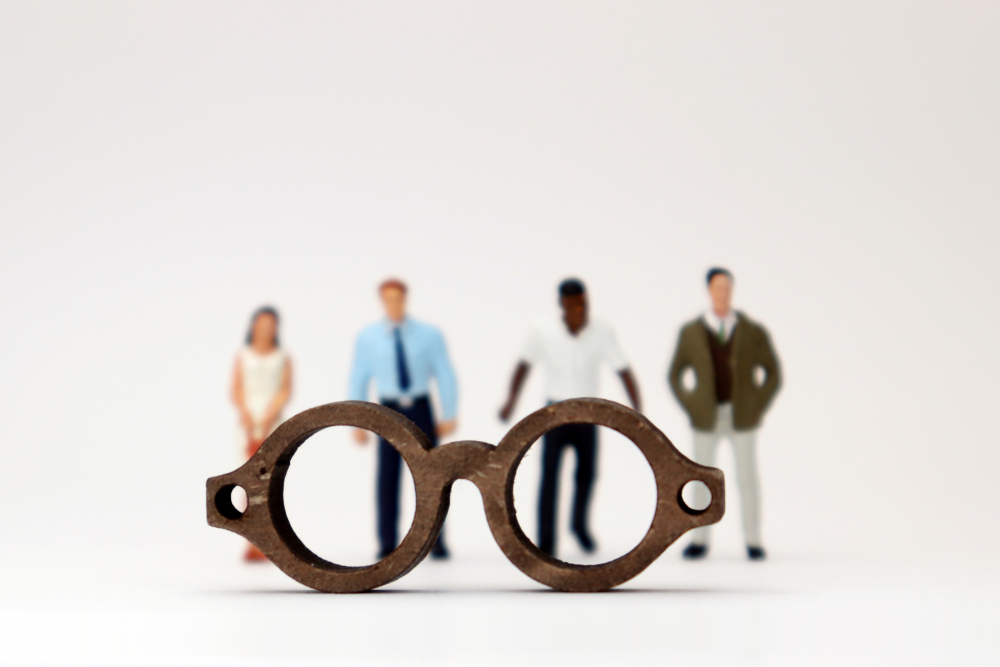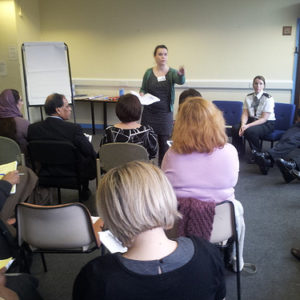So how do you know if you are biased? Answer is, you’re human. Bias exists within all people, at some level at some point, for varying durations, within their lives. The more overt forms of bias, which often takes the form of naked discrimation, are rightly confronted within society and, on a general level, there has been massive progress in confronting discrimination and bias when it comes to careers and job selection, although much more remains to be done, particularly in the area of equality. However, unconscious bias continues to exist within many workplaces and their component parts. What is it and how can you recognise it and fight against it?
About Unconscious Bias
Unconscious bias is a mercurial opponent, if you’re a victim of it, you very likely have no idea that you are. That’s why it’s called unconscious, you have no idea that you may be doing it even as you are actually doing it. Which may make it sound like it’s trivial, but it’s not. Bias is based on opinions which you have formed, based on experiences, and works by your brain convincing you that the way you have seen things done is the way that must be done, or a particular group of people are not good at certain tasks, therefore they must not be given particular roles. It’s built upon years of observations, conversations and experiences that train your brain into thinking a particular way and encouraging you to repeat patterns that it is comfortable with, enabling you to operate in your ‘comfort zone.’ Within an organisation, unconscious bias can occupy the entire management structure or your team structure, and be seamlessly passed on from one employee and one generation to the next, until it is confronted.
Let’s have a look at some steps that can be taken:
Diversity
While unconscious bias may thrive on preconceived opinions, it struggles in the face of empowerment. At a US conference last year, female panelists spoke of their experiences of unconscious bias within organisations. One said that while enterprises can take action within their firewalls, unconscious bias is human. There are no corporate or regional boundaries and it pervades the entire organisation. By creating teams that are diverse in terms of gender, background and skill sets, teams can begin breaking the unconscious bias chain. Initially this can happen by some uncomfortable conversations and realisations. Diverse teams must be staffed with different people with different mindsets, unified by their ability to do a particular role. The cognitive diversity that they can bring to that job enriches both the team and the organisation by directly confronting unconscious bias about particular people fitting into particular roles.
Understanding
Because someone is biased doesn’t mean they are deeply flawed. In many cases quite the opposite. You could be a high-performing, inspiring and compassionate manager yet also suffer from unconscious bias. Think of it as a blind spot, we all have them to some extent, yet for many the bias may never assert itself due to either positioning within a company hierarchy or a lack of confidence in articulating it. In Blindspot: The Hidden Biases of Good People, authors Mahzarin Banaji and Anthony Greenwald argue convincingly that unconscious bias is so difficult to correct because so much of the human mind operates unconsciously. According to Eric Kandel, a Nobel prize winning Neuroscientist at Columbia University, he estimated that as much as 80% or 90% of the human mind operates unconsciously. Using that as a basis, we need to focus on using what we can to consciously deal with bias, as so much of our cognitive bandwidth is already operating subconsciously.
Inclusive language
This is a straightforward step to take, using non-gender specific language when referring to roles. You would think it’s one that has already been taken, yet it is amazing how easy it can be to use gender-encompassing stereotypes. In a recent article in Fast Company magazine, the author showed an email sent around a company on more gender inclusive wording for job specifications, which was prefaced with ‘Hi guys…’ We have all done that, or similar right? Just shows how easy it can happen. Language is so important, as it colours and shapes the message therein, particularly in something like a job description, as some words are just linked subconsciously to particular genders. For example, tech company Buffer noticed a massive increase in female applicants for their roles when they replaced the word ‘hacker’ with the word ‘developer’ in their job specifications.
Take a deep breath and think
This would especially be for those in recruiting positions or in managerial positions when it comes to promotions etc. A CV that you might receive for a position puts you in a ‘blame free’ position to unleash your unconscious bias and make life easier for yourself by making an easy decision, that may well not be the right one for the organisation. A CV may have universities that you have an opinion of, or competitor companies in someone’s work history that you have an instinctive bias against. To help fight unconscious bias you can do simple things like taking a series of deep breaths, using brain science to drive thoughts towards the frontal lobe where more sophisticated decisions are made, before making a judgement on someone.
It’s not going to go away but we all have a part to play
Whether we like to admit it or not, we have all made biased decisions or judgements in the course of our lives. We have likely also been the victims of biased decisions or judgements. The fact that unconscious bias is formed in a part of the human mind that we have almost no control of makes it very difficult to confront. The only way it changes is for the mind to think differently, for the brain to make you act differently. This is done by exposing it to different influences, voices, backgrounds and experiences. This challenges us to find ways of doing things that, instead of slowing you down, can actually often be far better ways than that which were done previously. Also, it is not just bad habits that take hold, good habits also prosper when there is a collective appreciation of them and if you can make a small step in pushing back against unconscious bias, then it is likely to be appreciated by someone who may then take the same step themselves.












Comments